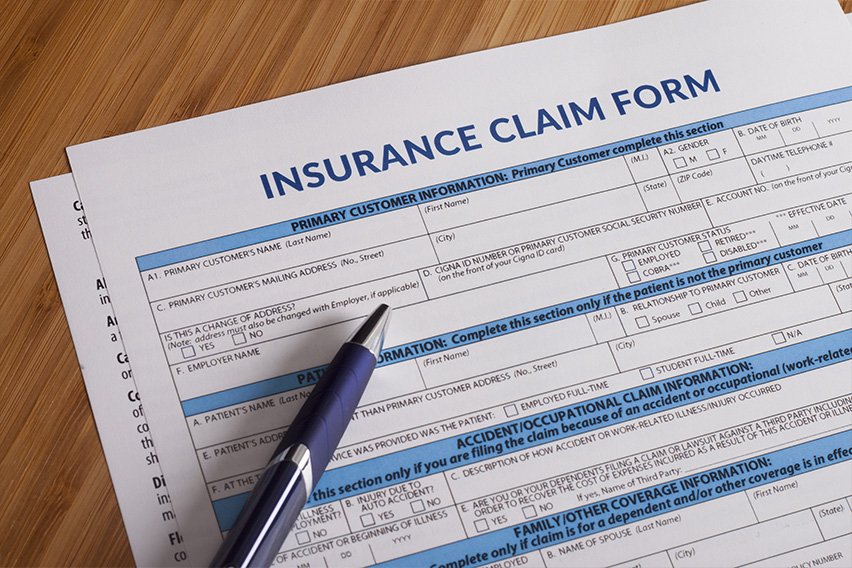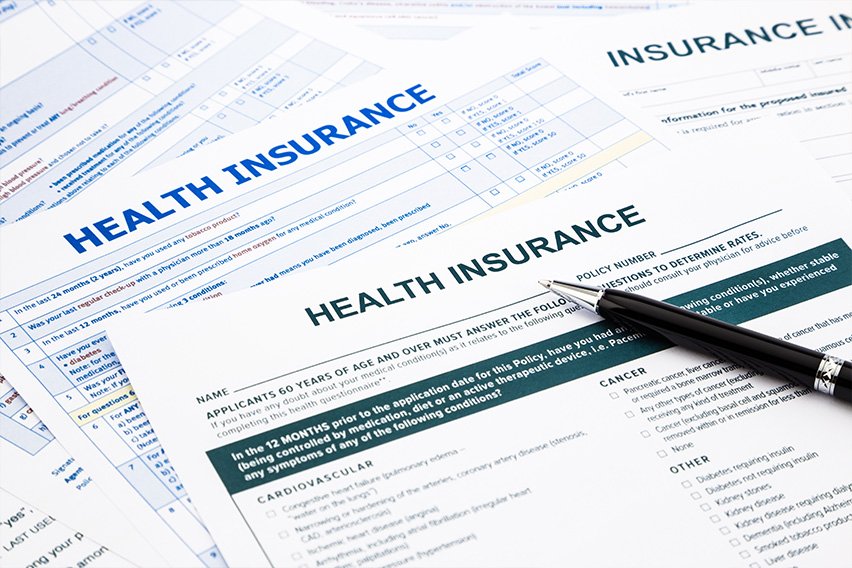Is Health Insurance Tax Deductible for Self Employed Workers? A Guide to Writing Off Insurance Costs

Self-employed people have to pay for individual and family health care plans out of pocket. Because of that big financial burden, health insurance is tax deductible for self-employed workers under the Affordable Care Act. The self-employed health insurance deduction can help freelancers and entrepreneurs better afford the cost of health insurance and save money on their income tax return.
These topics cover the details of the self-employed health insurance deduction and how to claim it:
Is Health Insurance Tax Deductible for Self Employed?
How to Write Off Self-Employed Health Insurance
Self-Employed Health Insurance Deduction Example
What Medical Expenses Can I Deduct?
Is Health Insurance Tax Deductible for Self Employed?
Health insurance is tax deductible for self-employed workers in the US. The health insurance deduction can be a valuable tax write off that saves a great deal of money for small businesses and freelancers, but many people aren’t aware of the deduction or don’t know how to claim it as part of their tax filing.

The self-employed tax deduction allows self-employed people to write off:
- Health insurance premiums for you, your spouse and other dependents
- The cost of dental care and long-term care coverage
- Insurance plans for children and adults up to the age of 27 (26 or younger at the end of the tax year), even if they are not a dependent
The health insurance deductible can be claimed by sole proprietors, LLCs and shareholders of S corporations owning at least two percent of the company’s stock.
Limitations to Self-Employed Health Insurance Deductions
There are limitations to when and how you can claim self-employment health insurance deductions. Get to know the deduction eligibility rules:
- Your eligibility is determined by month: You can only write off your health insurance plan premiums in months where neither you nor your spouse were covered by an employer-subsidized health plan. For example, if your husband or wife worked for a company full time only in January 2018 and received employer-subsidized health insurance, you would only be able to claim the self-employed health insurance deduction for eleven months of the year, excluding January.
- Your eligibility is limited by your earned income: Your health insurance deduction cannot exceed the amount of money you earn from running your self-employed business. So, for example, if your business reports a tax loss for the year, you aren’t eligible to claim the deduction because you didn’t generate positive income from your business activity. Or, if you earn $2,000 in income but your health care premium costs are $5,000 for the year, you can’t claim $3,000 of your expenses.
How to Claim the Self-Employed Health Insurance Deduction
Writing off the self-employed health insurance deduction is a straightforward process for small businesses and freelancers. Since the self-employed health insurance deduction is a personal deduction, you can include this write off on your Form 1040. If you are a member of a partnership and the partnership pays the premiums, they will be included on the K-1.
You need to itemize your deductions. If, after itemizing them, you don’t end up claiming all of your health insurance costs on Form 1040, you can add the rest of your medical expenses to Schedule A. On Schedule A, your medical expenses will be subject to federal tax rules that use adjusted gross income to limit the amount eligible for deduction. You can deduct medical expenses that exceed ten percent of your adjusted gross income on Schedule A.
If you’re a small business owner who employs workers, this article can help you determine if your business needs to provide health insurance to employees.
Self-Employed Health Insurance Deduction Example
Here’s a real-world example of how you can claim the self-employed health insurance deduction on your tax filing:
You run a freelance graphic design business that’s registered as a sole proprietorship. After your expenses, you’re claiming a profit of $6,000 for the year. You paid $8,000 in health insurance premiums that same year.
Because your health insurance deductible can’t exceed your income, you can only claim $6,000 of the cost of your premium on Form 1040. However, you can claim the additional $2,000 in premiums on Schedule A, as long as you itemize your medical expenses.

What Medical Expenses Can I Deduct?
According to the IRS, small business owners and other self-employed workers can claim any medical expense as an itemized deduction as long as the expenses was used to diagnose, treat, cure, mitigate or prevent a medical condition or disease. Specifically, qualifying expenses include:
- The cost of medical treatment from doctors, surgeons, dentists or other medical professionals
- The cost of medication that was prescribed to you by a medical professional
- The cost of medical equipment, devices or supplies that were prescribed by a medical professional, which could include everything from a cardiac monitor to eyeglasses
- The cost of health insurance premiums for both medical and dental coverage, as long as they aren’t covered by an employer (your own or your spouse’s)
- The cost of transportation and accommodation when traveling to a healthcare facility outside your area, including the cost of mileage at a rate of 18 cents per mile
- The cost of long-term care for you or a dependent, as well as the cost of long-term care insurance
There are several expenses that aren’t tax deductible, including:
- The cost of vitamins and supplements
- First aid equipment
- Many elective surgeries, including cosmetic procedures such as a face lift
- The cost of controlled substances like marijuana, even if they’re prescribed
RELATED ARTICLES

 Business Insurance Claims: How To File Claims And Get Paid Out Faster
Business Insurance Claims: How To File Claims And Get Paid Out Faster What Is Commercial Insurance? How to Protect Your Small Business From Financial Loss
What Is Commercial Insurance? How to Protect Your Small Business From Financial Loss What Is Commercial General Liability Insurance? How to Protect Your Business from Financial Loss
What Is Commercial General Liability Insurance? How to Protect Your Business from Financial Loss Health Insurance for Freelancers: Affordable Coverage Options for the Self-Employed
Health Insurance for Freelancers: Affordable Coverage Options for the Self-Employed The Top 10 Types of Insurance Claims Filed by Small Businesses
The Top 10 Types of Insurance Claims Filed by Small Businesses What Is Small Business Insurance? A Complete Guide to Insurance for Startups
What Is Small Business Insurance? A Complete Guide to Insurance for Startups